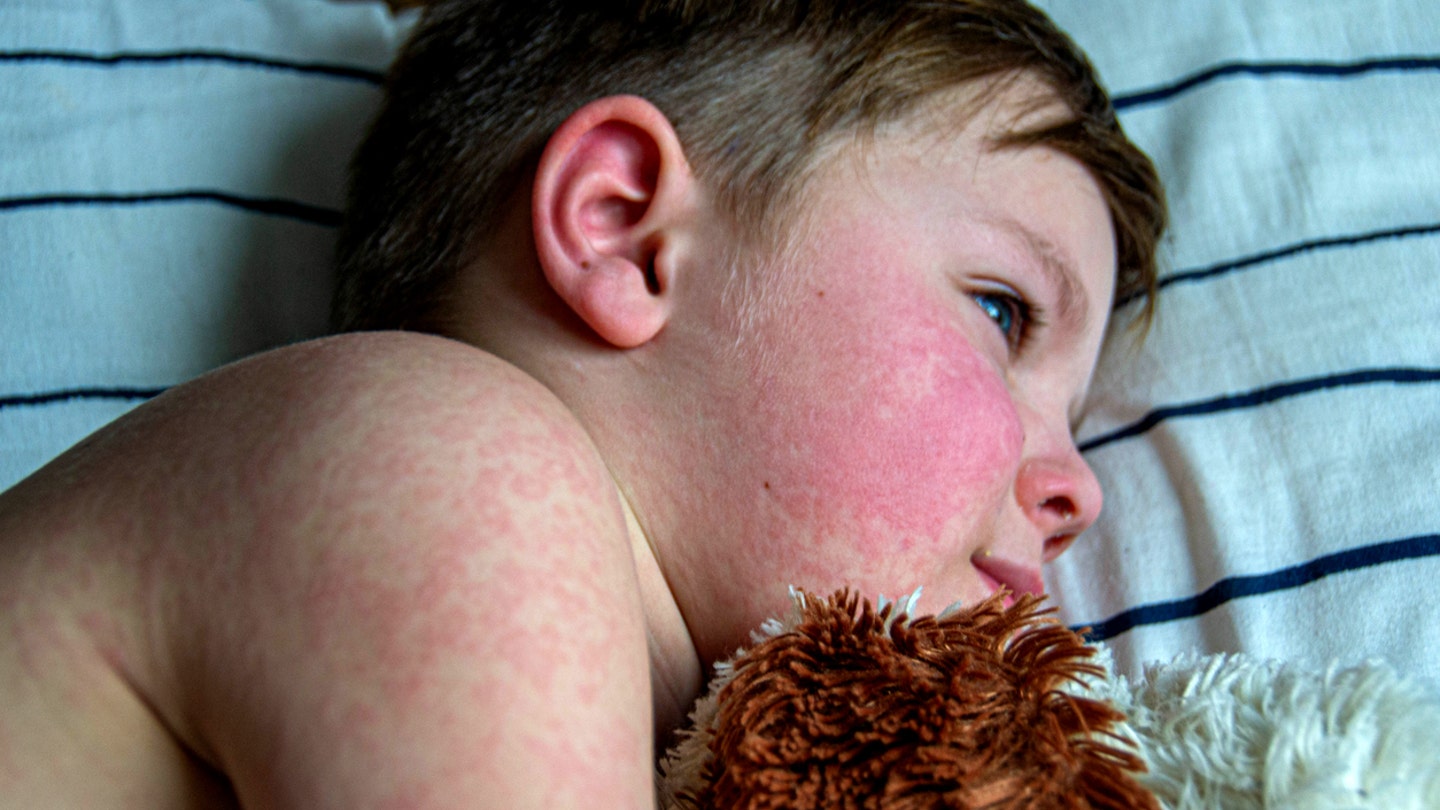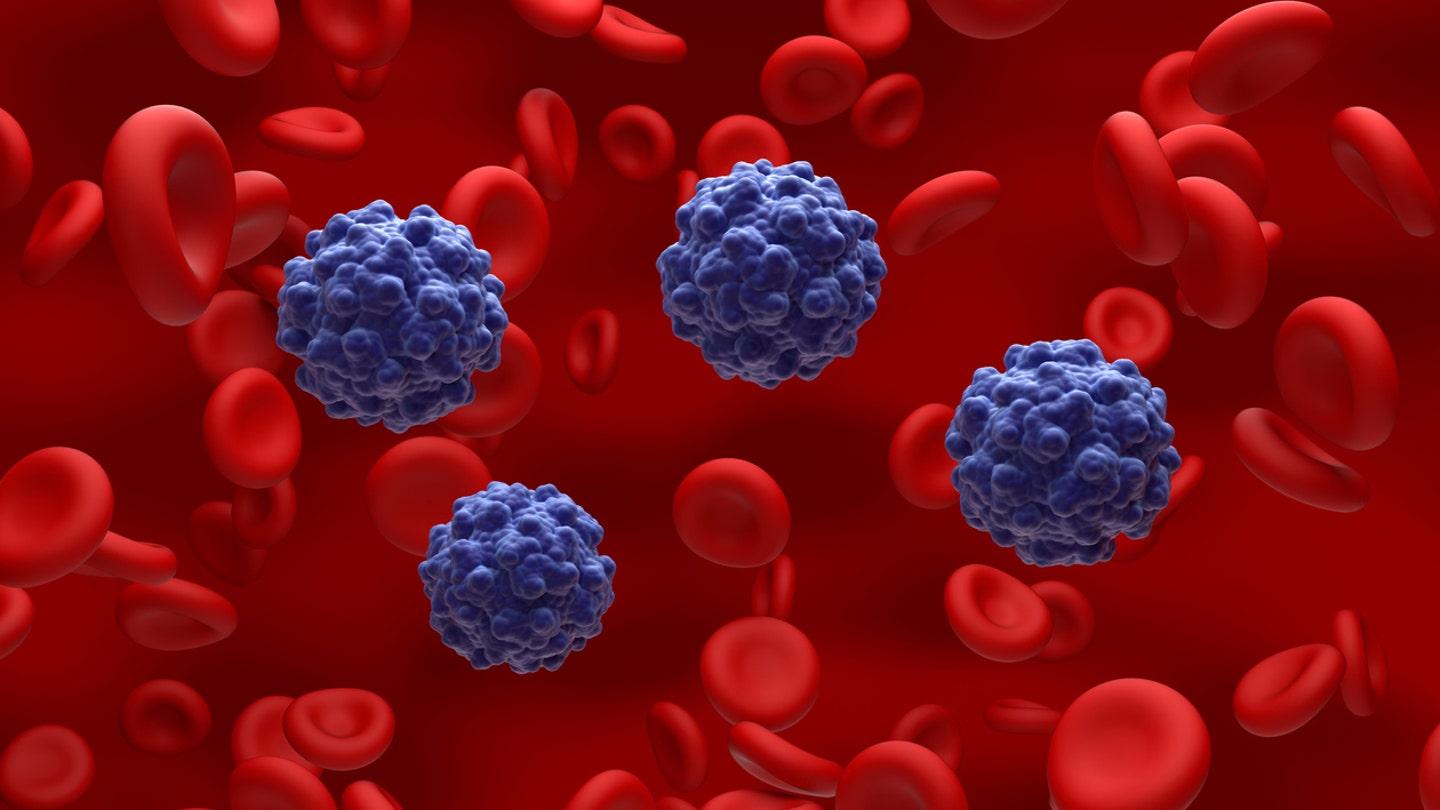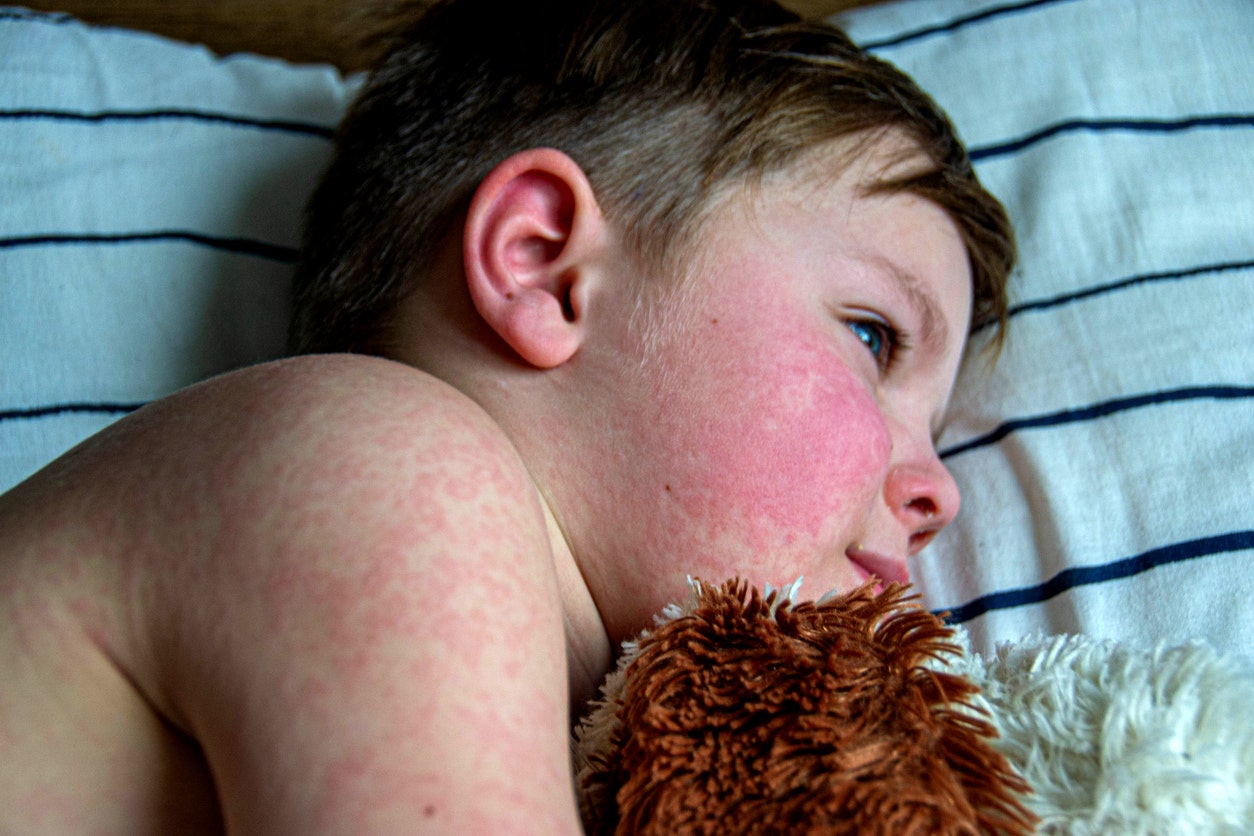A respiratory disease known as parvovirus B19 is on the rise in the U.S. among all age groups, according to a recent advisory from the U.S. Centers for Disease Control and Prevention (CDC).
The CDC issued the health alert on Aug. 13 after European public health authorities reported “unusually” high numbers of cases in 14 countries during the first quarter of 2024, the advisory said.
The virus typically causes a blotchy rash on the cheeks that appears as if someone has slapped them — hence its nickname, “slapped cheek disease.”
WITH MPOX A PUBLIC HEALTH EMERGENCY IN AFRICA, WHAT YOU MUST KNOW ABOUT INCREASED VIRUS RISK
Parvovirus can be a very mild infection in many people, but if you are pregnant or are immunocompromised in any way, you are at a much greater risk of serious illness,” Dr. Aaron Glatt, chief of infectious diseases at Mount Sinai South Nassau Hospital on Long Island, New York, told Fox News Digital.
What is parvovirus B19?
Parvovirus B19 is a virus that can be easily spread by respiratory droplets in the air after an infected person coughs or sneezes, according to the CDC.

A respiratory disease known as parvovirus B19 is on the rise in the U.S. among all age groups, according to a recent advisory from the U.S. Centers for Disease Control and Prevention (CDC). (iStock)
Children are often infected at school and spread it to other kids through close personal contact, then later to adults when they come home, experts say.
Approximately 50% of people who were not previously infected contract the virus from an infected family member — while 20% to 50% of susceptible students and staff become infected during school outbreaks, the advisory notes.
“The virus is highly contagious and can spread asymptomatically,” Dr. Marc Siegel, senior medical analyst for Fox News and clinical professor of medicine at NYU Langone Medical Center, told Fox News Digital.
WEST NILE DEATH REPORTED IN TEXAS AS HEALTH OFFICIALS WARN RESIDENTS TO SAFEGUARD AGAINST MOSQUITOES
Parvovirus B12 is also known as “fifth disease” because it was previously listed fifth on a list of common childhood viral illnesses that cause rashes, according to Mayo Clinic.
(The top three on this list are measles, rubella and scarlet fever.)
Symptoms of the virus
Many people who get infected don’t have symptoms, but some will experience sickness, according to the advisory.
About a week after an exposure, susceptible children may complain of flu-like symptoms, including fever, muscle pain and fatigue, which generally last less than a week.
People are most contagious in this early phase of the illness.

The virus typically causes a blotchy rash on the cheeks that appears as if someone has slapped them — hence the nickname “slapped cheek disease.” (iStock)
Several days after the fever starts, children often develop the hallmark blotchy “slapped cheek” rash — a helpful clue that health care providers use to diagnose the illness.
People are generally not infectious by the time they develop the rash, experts say.
A fine, “lacy” rash may follow on the chest, back, buttocks, or arms and legs that is sometimes itchy, according to the CDC. It usually goes away in about a week to 10 days.
WEST NILE DEATH REPORTED IN TEXAS AS HEALTH OFFICIALS WARN RESIDENTS TO SAFEGUARD AGAINST MOSQUITOES
Adults are less likely to develop the “slapped cheek” rash. Their most common symptoms are a generalized rash on the body and joint pain that affects the hands, feet and knees.
In some cases, adults only experience joint pain, which usually lasts one to three weeks – although it can last for months. It usually resolves without long-term complications.
Antibodies provide immunity
Antibodies from prior infection help prevent recurrence of parvovirus B12, the CDC said.
“Once infected, you have a lifetime immunity,” Siegel noted.
The largest increase in infections was among children ages 5 to 9.
Most adults in the United States are immune — with 50% having detectable antibody levels by age 20, and more than 70% acquiring them by age 40, per the advisory.
LISTERIA INFECTION LINKED TO DELI MEATS KILLS 2, INFECTS 28 ACROSS US, CDC WARNS
The share of people who have had a recent infection dropped below 3% between 2022 and 2024, but increased to 10% in June of this year.
The largest increase in infections was among children ages 5 to 9, going from 15% to 40% in that time frame, the health alert noted.
People who work in settings with close contact with children, such as schools and day cares, are at a greater risk of infection.
High-risk populations
Most healthy adults and children only have a mild illness, but people with weakened immune systems, pregnant women and those with chronic blood disorders can develop serious health complications from this virus, according to the CDC.
“Anyone with those conditions should be very quick to seek out medical attention to help address potential complications,” Glatt noted.

Pregnant women who are susceptible to the virus may spread the illness to their babies, the CDC warned. (iStock)
Pregnant women who are susceptible to the virus may spread the illness to their babies, the CDC warned.
“Unfortunately, there is an increased risk of miscarriage if you get parvovirus during pregnancy,” Glatt said.
CLICK HERE TO GET THE FOX NEWS APP
Parvovirus infection may lead to adverse outcomes — such as severe anemia in the fetus and miscarriage — in 5% to 10% of cases during pregnancy, with the highest risk at between 9 and 20 weeks of fetal gestation, per the advisory.

While parvovirus B19 can affect humans of all ages, only two out of 10 individuals will have physical symptoms. (iStock)
“There is an increased risk of complications in patients with significant immunocompromising conditions, such as those who have leukemia, have received an organ transplant or have an HIV infection,” Glatt added.
Since most adults are immune to the virus, however, many pregnant women are protected from the virus, the CDC noted.
Treatment is mainly ‘supportive care’
Infected pregnant women primarily receive supportive care, which means treating the underlying symptoms and monitoring for severe fetal anemia, according to the advisory.
CLICK HERE TO SIGN UP FOR OUR HEALTH NEWSLETTER
People with weakened immune systems or those with chronic blood disorders can sometimes develop bone marrow failure as a result of the virus, the advisory added.
In that case, treatment often includes blood cell transfusions and intravenous immunoglobulin (IVIG).

People are generally not infectious by the time they develop the rash, experts say. (iStock)
(IVIG is a collection of antibodies that strengthens the immune system, according to Mayo Clinic’s website.)
There is currently no vaccine to prevent parvovirus B19, and most people infected with the virus will recover without any long-term complications.
For more Health articles, visit www.foxnews.com/health
“While there is no specific treatment for parvovirus infection, recognizing the complications and addressing them early may be of benefit,” Glatt added.
Hand-washing can also help to prevent transmission, according to Siegel.

